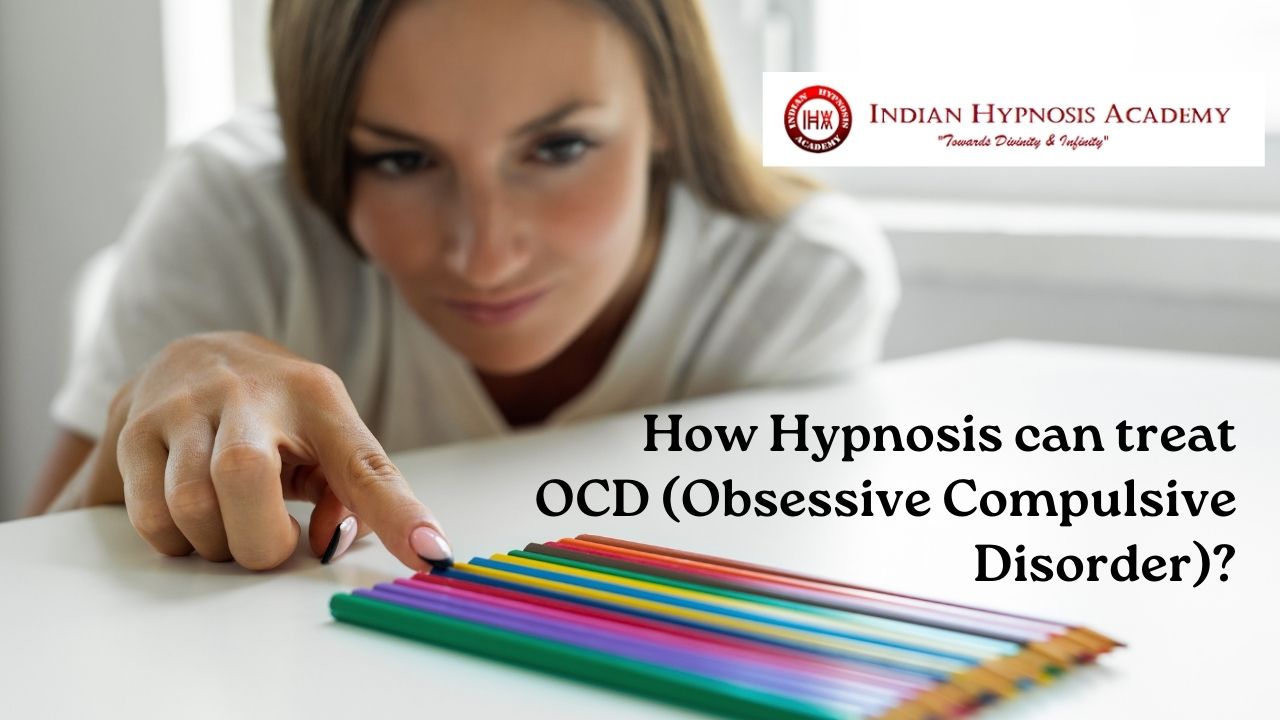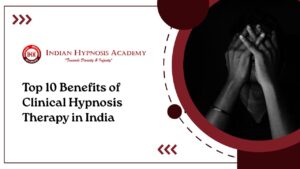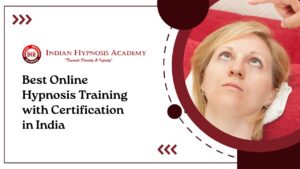Introduction to OCD and its symptoms
Do you find yourself trapped in a cycle of intrusive thoughts and repetitive behaviors? Obsessive Compulsive Disorder (OCD) can be an overwhelming condition, making everyday tasks feel like insurmountable challenges. But what if there was a way to tap into the power of your subconscious mind to break free from this debilitating cycle? Enter hypnosis – a fascinating technique that has shown promising results in treating OCD. Let’s delve into the world of hypnosis and explore how it can offer relief for those struggling with OCD symptoms.
Understanding the role of the subconscious mind in OCD
Obsessive-Compulsive Disorder (OCD) is a complex mental health condition that goes beyond surface-level behaviors. Deep within the mind, lies the subconscious – an intricate web of thoughts, beliefs, and memories. In individuals with OCD, this realm plays a significant role in driving repetitive thoughts and compulsions.
The subconscious mind stores past experiences and emotions, often influencing present behavior without us even realizing it. For those with OCD, certain patterns or triggers may be deeply rooted in the subconscious. These can manifest as intrusive thoughts or rituals aimed at alleviating anxiety or preventing perceived harm.
Understanding how the subconscious influences OCD is key to unlocking effective treatment strategies. By delving into the underlying factors buried within this part of the mind through methods like hypnosis, therapists can help individuals reframe their perceptions and responses to obsessive thoughts.
In essence, unraveling the mysteries of OCD requires peeling back layers to reveal how deeply ingrained beliefs shape our actions. Only then can we begin to address these unconscious drivers and pave the way for lasting healing and recovery.
What is Hypnosis?
Have you ever wondered what hypnosis really is? It’s often portrayed in movies and TV shows as a way to make people act like chickens or reveal their deepest secrets. But in reality, hypnosis is much more than that.
Hypnosis is a natural state of deep relaxation and focused attention. During hypnosis, the conscious mind takes a back seat while the subconscious mind becomes more open to suggestions. It’s not about mind control or losing consciousness – it’s about tapping into the power of your own mind.
Through guided relaxation techniques and positive affirmations, a certified hypnotherapist can help you access your subconscious thoughts and beliefs. This can be incredibly helpful for overcoming mental blocks, changing negative behaviors, and improving overall well-being.
Hypnosis is often used as a therapeutic tool to help people overcome fears, phobias, and addictions. It can also be used to improve self-esteem, manage stress and anxiety, and even enhance athletic performance.
Contrary to popular belief, hypnosis cannot make someone do something against their will or reveal secrets they don’t want to share. The person being hypnotized is always in control and can come out of the state at any time.
Hypnosis has been practiced for centuries and has gained more recognition in recent years as a valid form of therapy. It’s important to note that not everyone responds the same way to hypnosis, and it may not be effective for everyone. It’s best to work with a certified hypnotherapist who can tailor the session to your specific needs.
In conclusion, hypnosis is a natural state of deep relaxation that allows access to the subconscious mind. It can be a powerful tool for personal growth and overcoming obstacles in life. If you’re curious about hypnosis, consider finding a certified hypnotherapist near you to learn more.
The connection between Hypnosis and OCD treatment
When it comes to treating OCD, the connection between hypnosis and therapy is becoming increasingly recognized. Hypnosis works by accessing the subconscious mind, where deep-seated beliefs and behaviors reside. By tapping into this part of the mind, hypnotherapy can help reframe negative thought patterns that contribute to OCD symptoms.
Through guided relaxation techniques and focused attention, individuals undergoing hypnosis for OCD can gain greater insight into their triggers and compulsions. This heightened awareness allows them to challenge irrational fears and anxieties more effectively.
Hypnosis doesn’t aim to erase all obsessive thoughts but rather helps individuals develop a healthier relationship with their thoughts. It empowers them to respond differently to intrusive urges, reducing the need for compulsive behaviors.
The transformative power of hypnosis lies in its ability to address underlying emotional issues that fuel OCD symptoms. By rewiring cognitive processes at a subconscious level, hypnotherapy offers a unique approach to managing and alleviating the impact of Obsessive Compulsive Disorder on daily life.
Case studies and success stories of using Hypnosis for OCD
Let’s dive into real-life examples of how hypnosis has been a game-changer in treating OCD. Meet Sarah, who struggled with intrusive thoughts and repetitive behaviors for years until she tried hypnotherapy. Through targeted sessions, she learned to rewire her subconscious patterns and gained control over her compulsions.
Another inspiring story is that of Alex, whose fear of contamination consumed his daily life. After undergoing hypnosis sessions, he experienced a significant reduction in anxiety levels and found peace from his obsessive rituals.
Hypnosis isn’t just about relaxation; it’s about tapping into the power of the mind to break free from the grip of OCD symptoms. These success stories highlight the transformative potential of hypnotherapy in rewiring thought patterns and restoring mental well-being.
Each individual journey is unique, but these cases demonstrate that hypnosis can be a valuable tool in managing OCD symptoms effectively.
How Hypnosis is used to treat OCD
Hypnosis is used as a powerful tool in treating OCD by tapping into the subconscious mind. During hypnotherapy sessions, individuals are guided into a deeply relaxed state where their minds become more open to suggestions and positive changes. This allows for targeted interventions to address obsessive thoughts and compulsive behaviors associated with OCD.
Through hypnosis, therapists can help reframe negative thought patterns, challenge irrational beliefs, and promote healthier coping mechanisms. By accessing the root cause of the OCD symptoms stored in the subconscious mind, hypnotherapy aims to bring about lasting behavioral change and symptom relief.
During hypnosis sessions for OCD treatment, individuals may visualize themselves overcoming challenges, practicing relaxation techniques, or confronting fears in a controlled environment. These visualizations can help desensitize triggers and build resilience against intrusive thoughts.
Hypnosis offers a unique approach to treating OCD by working on a deeper level of consciousness to effect positive changes in behavior and thought patterns.
Benefits and limitations of using Hypnosis for OCD
Hypnosis offers a range of benefits for treating OCD. It can help individuals access their subconscious mind to uncover underlying triggers and patterns contributing to their compulsive behaviors. By addressing these root causes, hypnosis can assist in reprogramming negative thought patterns and promoting more positive behavior responses.
Moreover, hypnosis is a non-invasive treatment option that does not involve medication or significant side effects. It can be used in conjunction with other therapies or as a standalone approach tailored to suit the individual’s needs.
However, it is essential to note that hypnosis may not work for everyone with OCD. Results vary from person to person, and some individuals may require additional or alternative treatments alongside hypnotherapy to manage their symptoms effectively.
Additionally, the effectiveness of hypnosis for OCD treatment may depend on factors such as the individual’s willingness to engage in the process, the skill level of the therapist, and the severity of the condition. It is crucial for individuals considering hypnotherapy to consult with qualified professionals experienced in treating OCD using this approach.
Other alternative treatments for OCD
When it comes to treating OCD, there are various alternative therapies that can complement traditional approaches like medication and therapy. One such alternative treatment is Cognitive Behavioral Therapy (CBT), which helps individuals identify and change negative thought patterns that contribute to their obsessive behaviors.
Another option is Exposure and Response Prevention (ERP) therapy, where patients are gradually exposed to their fears or triggers and learn how to resist performing compulsive rituals. Mindfulness techniques have also shown promise in helping individuals with OCD manage their symptoms by increasing self-awareness and reducing anxiety.
Some people find relief through natural supplements like Inositol or N-acetylcysteine, which may help regulate neurotransmitters in the brain associated with OCD symptoms. Acupuncture, yoga, and meditation are other holistic approaches that some individuals have found beneficial in managing stress levels and improving overall mental well-being.
It’s essential for those struggling with OCD to explore different treatment options and find what works best for them individually. What works for one person may not work for another, so being open-minded and willing to try different modalities can be key in finding effective ways to cope with this challenging disorder.
Conclusion: The potential of Hypnosis in treating OCD and its overall impact on mental health
Hypnosis has shown promising results in treating OCD by targeting the subconscious mind, where the root of the disorder often lies. Through techniques like suggestion and relaxation, hypnotherapy can help individuals reframe their thoughts and behaviors, leading to a reduction in symptoms and an improved quality of life.
While hypnosis may not be a standalone solution for everyone with OCD, it can be a valuable complementary therapy alongside other treatments such as medication and cognitive-behavioral therapy. The benefits of using hypnosis for OCD include its non-invasive nature, personalized approach, and potential long-term effectiveness.
Hypnosis offers hope for those struggling with OCD by tapping into the power of the mind to bring about positive changes. As more research is conducted and awareness grows around alternative therapies like hypnotherapy, we may see even greater strides in the treatment of OCD and its overall impact on mental health.




